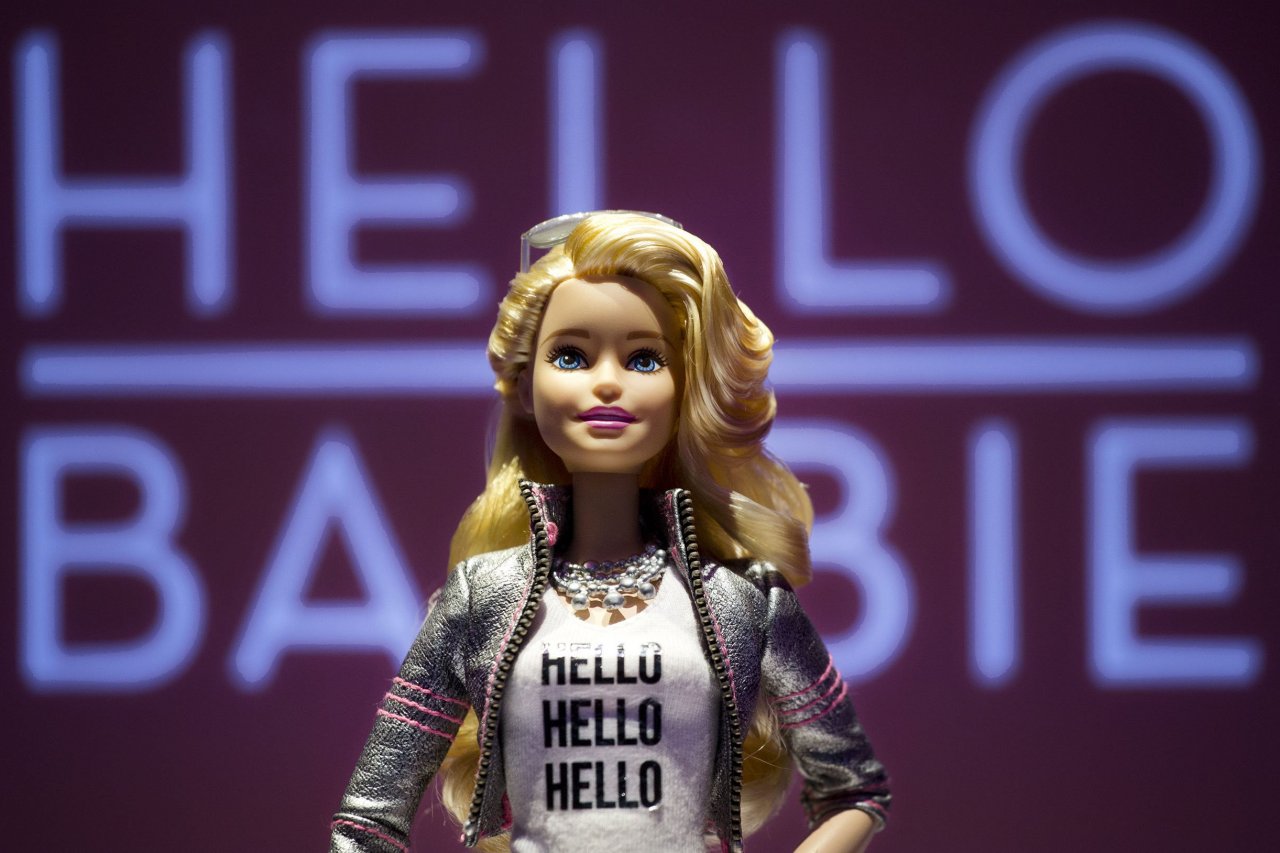Oddly enough, Pee-wee's Playhouse from the 1980s was a prescient, if somewhat bonkers, vision of the technology that will eventually make smartphones passé.
Give it about five years and your home could be like Pee-wee's bachelor pad, where everything becomes a conversant, intelligent and connected friend—the chairs, floor, clock, globe, toys and some sort of quirky, ambulatory robot.
The artificial intelligence technology to make this happen is emerging faster than you might think, coming from big companies such as Amazon and Google, the inventors of Siri and even the maker of Barbie dolls. The work is all pointed at a kind of fantasy that has floated around for ages, where our stuff comes alive and loves us. Pick your variant: the car in Knight Rider, the operating system in Her, the tea set in Disney's Beauty and the Beast. This goes far beyond the old saw about "smart homes" embedded with chips. This will make the things around us into some cross between a butler and a border collie.
"Intelligence becomes a utility," Dag Kittlaus, founder of Viv Labs and a Siri co-creator, told Wired. "Boy, wouldn't it be nice if you could talk to everything, and it knew you, and it knew everything about you, and it could do everything?"
The technology is aimed at overtaking the smartphone. If responsive, connected technology is all around you, you won't need to carry it in your pocket. And if anything you might need—a takeout order, music, the status of a friend—can be conjured by turning to, say, a lighting fixture and verbally asking for it, you won't need to rely on a bunch of discreet apps that you have to poke with your finger. Once this butler-style AI hits the masses, it will replace smartphones the way Ernest Hemingway wrote that one of his characters went bankrupt: gradually, and then suddenly.
You can already buy early editions of the technology. The current devices are a step up the evolutionary ladder from phone-based Siri and Google Now. This year, Amazon came out with a product called Echo, a Wi-Fi-connected cylinder loaded with Amazon's Siri-esque software, called Alexa. Put it in your house and it constantly listens for requests. While cooking for friends due to arrive any minute, your hands covered in olive oil, you can shout, "Alexa, I forgot to get the goddamn wine! Order a couple of my favorite cabs to be delivered." And it will do that. No phone required.
A similar product is being offered by a startup called Cubic—except instead of a cylinder, Cubic is, you know, a cube.
If you want a more adorable take on the technology, check out Jibo. It's kind of like Echo or Cubic, except it has an eye-like thing that can turn to track your face and make cute expressions. It's so manipulatively cute, it seems as if it just popped out of a Pixar movie. Jibo just got $11 million in funding. Also, this Christmas, you could buy your kid a Hello Barbie, which comes loaded with AI built by former Pixar people. Hello Barbie will get to know your kid and become her friend. Can you imagine, though, the opportunities for hackers? Barbie might suddenly say to little girls, "OK, now go get your mommy's credit card..."
Google, Microsoft and Facebook are all funding labs that are working on friendly and helpful AI technology. In September, Chinese Internet giant Baidu got into the game. Well-funded Viv Labs is stocked with many of the same people who developed Siri and sold it to Apple.
All of the companies are chasing the concept of AI with a personality—friendly, familiar, helpful, intuitive. "The end-user should feel like he is interacting with a real person and not a device," Cubic CEO Yuriy Burov told Fast Company.
This direction especially makes sense for a Google or Facebook because they already know so much about you. Studies have shown that software can analyze your Facebook activity and understand your personality. If someone uses Google's panoply of products, Google will have a deep knowledge of that person's daily life. Add a layer of sophisticated AI, great voice-recognition technology and software that takes advantage of research into the science of emotions, and it's not a far leap for either of these companies to build technology that understands you and is aware of your circumstances, needs and desires.
Some of the companies are already signaling their longer-range goal of embedding the technology everywhere. Amazon launched Alexa Voice Service, which lets developers outside of Amazon add Alexa to any connected device. Viv Labs is deploying a similar licensing strategy to get its AI into lots of stuff. The gadget makers like Cubic and Jibo will do the same if they're savvy. That's how friendly AI is going to end up in smart TVs, smart cars, smart toilets.
Every dominant technology eventually meets its match. Mainframes gave way to PCs; PCs gave way to smartphones; and while it may take a long time, smartphones will take a back seat to something else someday—probably this. Of course, as with any new technology, there are concerns, privacy and security chief among them. There will be fits and starts and no doubt some disasters along the way. But none of that is going to stop friendly AI from coming.
Anyway, if movies and TV shows are any indication, society has been wanting this technology for a long time, though maybe with a few exceptions. You should know that Cubic claims its AI can tell jokes. The world may not really be a better place if your smart toilet knows you and can fire off Don Rickles one-liners. "Oh my God, what did you eat last night? A hockey puck?"




















